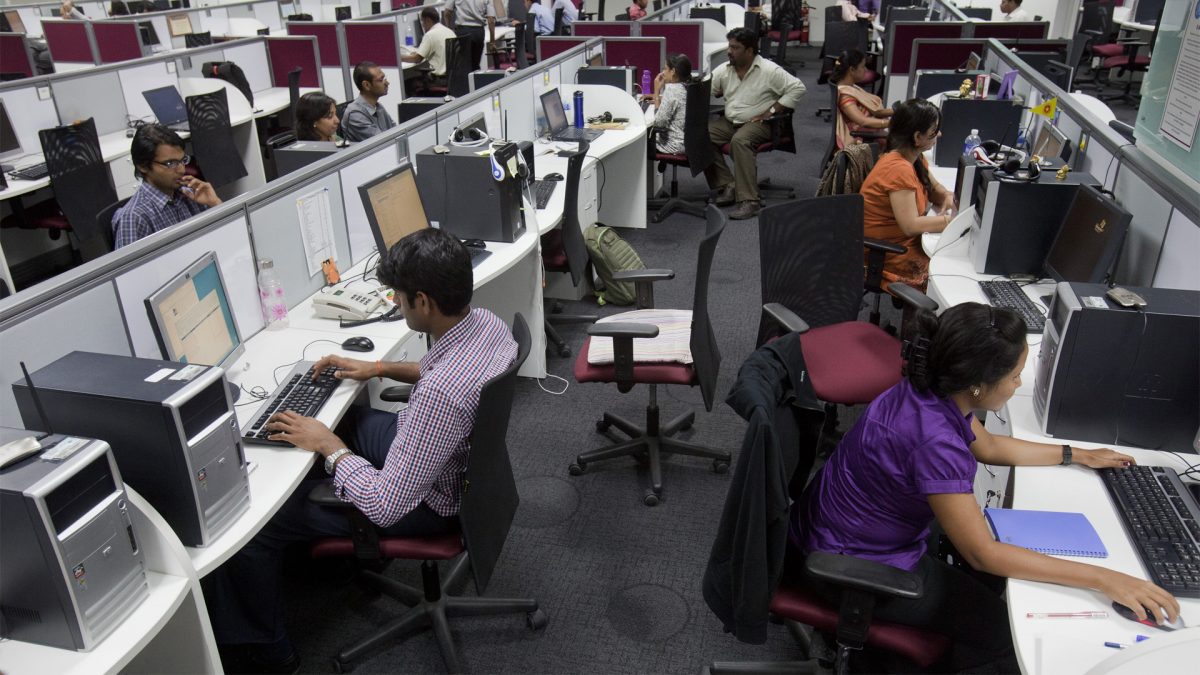As India aims to become a developed nation by 2047, marking 100 years of independence, the IT sector is set to play a crucial role. From services for the world, to services for Indian citizens, India’s IT sector has been the backbone of the movement that has made technology more accessible for people all across the world. In the AI and 5G era, we are looking at new challenges.
AI and Deep Tech are no longer fictitious elements found in sci-fi. Digital Public Infrastructure is not just a luxury for the first world, but a basic government function that is being pioneered by the developing world. With Initiatives like UPI, digital wallets, digital vaults, India is leading the way.

The upcoming 2024 Union Budget, however, needs to bolster this vision with strategic investments and reforms that will drive innovation, enhance infrastructure, and foster economic growth. Vision 2047: A Developed India Srividya Kannan, Founder and CEO of Avaali Solutions, highlights the importance of the IT industry in India’s future. “As we envision ‘Viksit Bharat’ by 2047, India aims to become a developed nation through comprehensive socio-economic reforms.
Central to this vision is the focus on manufacturing, with special emphasis on sunrise sectors such as machine learning, artificial intelligence, and renewable energy. For the IT industry, Global Capability Centers (GCCs) are playing a pivotal role, currently employing 1.66 million people and expected to rise to 2 million by 2026 with 1900 centres, up from 1580.
” To achieve these ambitious goals, several key recommendations are being proposed for the Union Budget 2024. These include enhancing export incentives, developing tier 2 locations, extending benefits to GIFT City, fostering innovation, advancing skill development, revising safe harbor rules, and improving infrastructure and GST policies. Kannan elaborates, “Prioritizing cybersecurity, hyper-scale computing, and AI will position India as a preferred destination for IT staffing and sourcing solutions.
Affordable data rates and strategic partnerships with global firms will enhance India’s appeal as an IT hub. Achieving equilibrium between input and output costs and fostering a human-centered culture are essential. The journey towards ‘Viksit Bharat’ by 2047 is both ambitious and achievable.
With strategic focus and comprehensive reforms, India is poised to emerge as a global leader in various sectors, creating a prosperous future for all its citizens.” What do Fintech startups say? Amjad Raza Khan, CEO of Cashaa, shares his expectations for the upcoming budget. “We are hoping for the same things as we were with the Interim Budget in February 2024.
Rationalisation of capital gains tax down from the current 30% and of the TDS tax rate of 1%. Treating crypto at par with other financial asset classes like equity. A well-defined regulatory framework for crypto in the country, making crypto a suitable investment option for the common man as well as spurring industry investment in the crypto sector.
” Key focus areas: By 2030, India’s digital economy is expected to touch the $1 trillion mark, contributing almost 20 per cent to the country’s GDP. To maintain this momentum, consistent investment in the right technologies at the right time is essential. Ranjana Adhikari, Partner, Technology, Media & Telecom laws practice group at IndusLaw, writes: “Based on ongoing initiatives and past spending trends, here are some key expectations from the upcoming Budget: 1.
Support for Digital Public Infrastructure (DPI): The Budget is expected to continue supporting India’s DPI, including Aadhaar, UPI, and DigiLocker, through expanded use cases and incentives. This is evident from the recently released ‘Report of India’s G20 Task Force on Digital Public Infrastructure’. 2.
Enhancing the Skill India Mission: To tackle unemployment, the Budget is likely to increase the outlay for the Skill India Mission, focusing on upskilling and training in coding, AI, robotics, IoT, 3D printing, and drones. 3. Focus on AI and Deep Tech: The government is anticipated to enhance its focus on AI and deep tech.
Initiatives like ‘Make AI for India’ and ‘Make AI work for India’ will be supported through capacity-building, R&D, and funding of AI applications in healthcare, agriculture, education, smart cities, mobility, and governance. This will likely be facilitated through schemes such as the Startup India Seed Fund Scheme, the Atal Innovation Mission, and the NIDHI scheme. Public-private partnerships in deep tech R&D may also be considered.
4. Cybersecurity Investments: Cybersecurity is expected to remain a critical focus area. The interim Budget nearly doubled the funds for cybersecurity from INR 400 crores in 2023-24 to INR 759 crores, indicating continued emphasis in the upcoming Budget.
” The 2024 Union Budget is set to be a pivotal moment in India’s journey towards becoming a developed nation. By focusing on IT services, innovation, and comprehensive reforms, India is well-positioned to emerge as a global leader, creating a prosperous future for all its citizens..



















